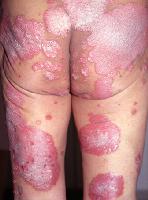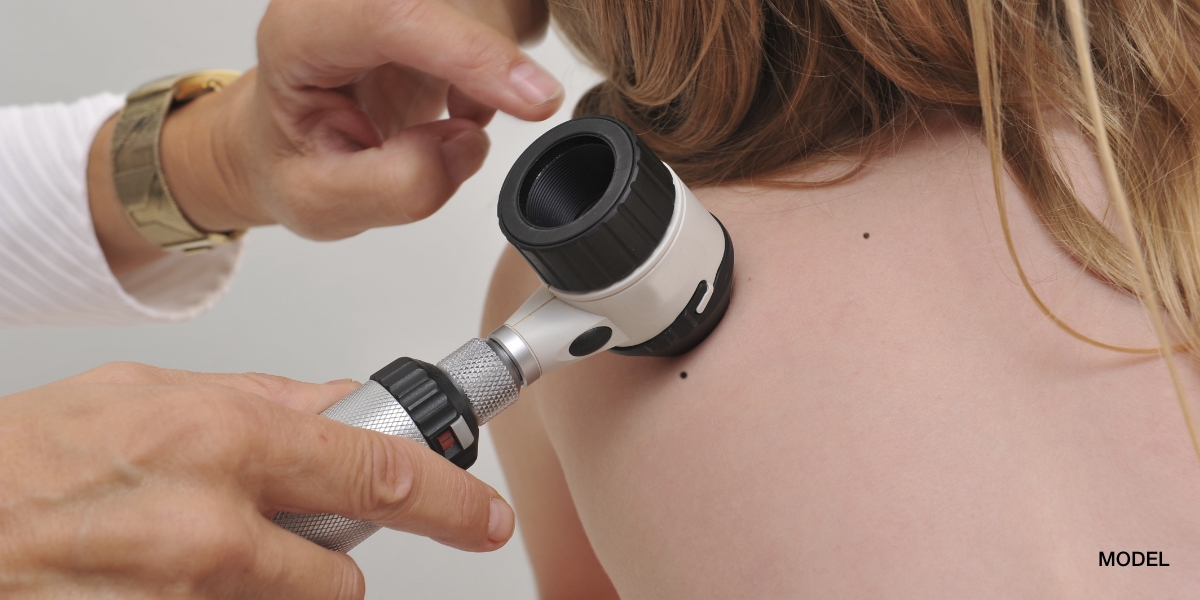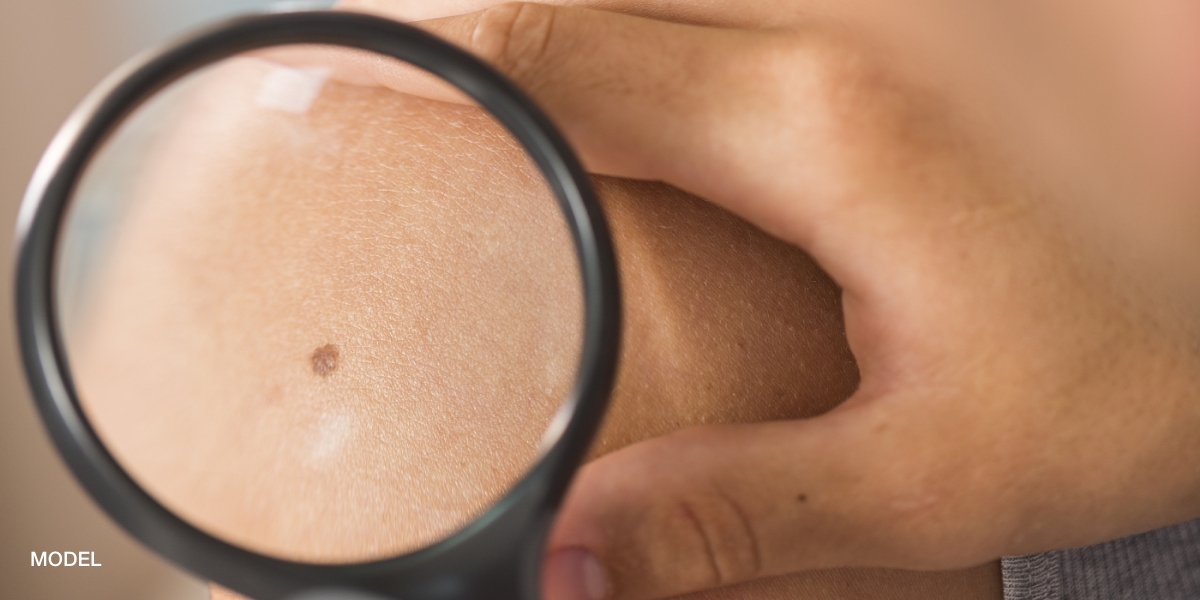The “classic” type of Psoriasis is Plaque Type which is a condition I encounter very frequently in both my The Woodlands dermatology and Conroe dermatology offices. A plaque of Psoriasis is commonly found on the extensor surfaces and the scalp but can be found almost anywhere on the body. Psoriasis plaques are very red with an overlying layer of white/silvery scale with very well circumscribed borders. Bleeding is very common from Psoriasis plaques and is termed the Auspitz Sign. The bleeding occurs as the scale is lifted off the plaques and can be explained histologically as the dermal papillae extend very close to the top of the epidermis and contain blood filled capillaries. Another interesting feature that is commonly seen is Koebner’s Phenomenon in which trauma to a Psoriasis plaque can stimulate the development of another adjacent plaque. Koebner’s Phenomenon explains why Psoriasis plaques are found on the extensor surfaces such as the elbows as these experience trauma from resting our arms on tables. The palms and soles also experience repeated trauma through constant usage so they are very prone to the development of Psoriasis.
March 12, 2011




